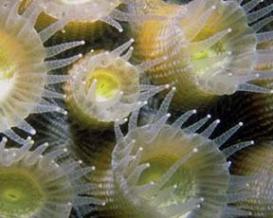Paradigm shifts and new research trajectories within biology often excite a wider audience, and some even fundamentally change the way we think about the world and our place within it. The so-called Darwinian revolution is the most prominent of such developments, the sequencing of the human genome may be counted as another. Many believe that the advent of new genome sequencing technologies is now ushering in a microbial turn. The detection of a staggering amount of hitherto unknown bacteria and single-celled organisms in situ has led to a revision of the pathogen-focused view of microbial life. Increasingly, microbes are seen as indispensable symbionts to all other forms of life, including humans. They provide essential nutrients and break down organic material. Every ecosystem on the planet, it seems, is dependent on the wellbeing of microorganisms.
The importance of microbial life not only unsettles the status quo within the life sciences. In the humanities and social sciences, the knowledge that humans are dependent on their symbioses with invisible critters has captured the attention of philosophers, artists and ethnographers. Many proclaim nothing less than a new worldview in the light of these findings—a worldview that emphasizes cooperation and indeed commune-like ways of living by considering symbiosis as a guiding principle. Two key figures are regularly referred to in this context: Lynn Margulis and Donna Haraway. Margulis, a biologist, was at the forefront of reviving microbial symbiosis research from the 1960s until her death in 2011 and is often understood as one of the experts on the topic. Haraway, a feminist science studies scholar who has drawn extensively on Margulis’s work, has not only critiqued biology from anti-racist and feminist viewpoints but has also used biological knowledge to probe Western notions of individualism.
As with any form of knowledge, Margulis’s and Haraway’s ideas did not emerge in a vacuum, but in a highly political milieu marked by deep divisions both inside and outside the university. Since its conceptualization, symbiotic knowledge has always been entangled with political struggles. By tracing the specific circumstances in which Margulis and Haraway turned to symbiosis as a guiding principle, the project aims to offer a corrective to the current biologistic fascination with the concept. It aims to show that symbiosis has always been both a biological and a political idea for both scholars, situated in the context of the social movements of the 1960s and the increasing neoliberalization of society and the university in the following decades. Thus, the project contributes to the historization of transdisciplinary knowledge formations and to a cultural history of knowledge that takes into account cultural, social, and political aspects of research in biology as well as in the humanities.

